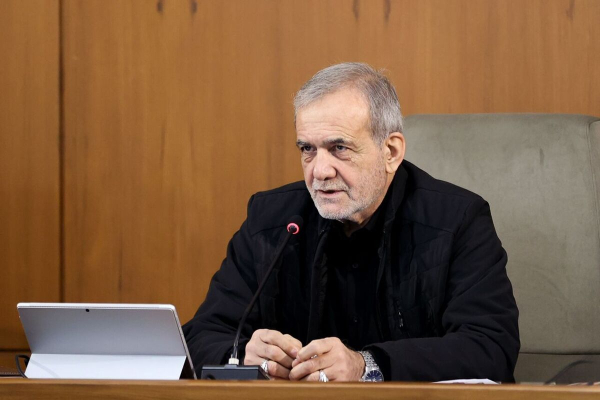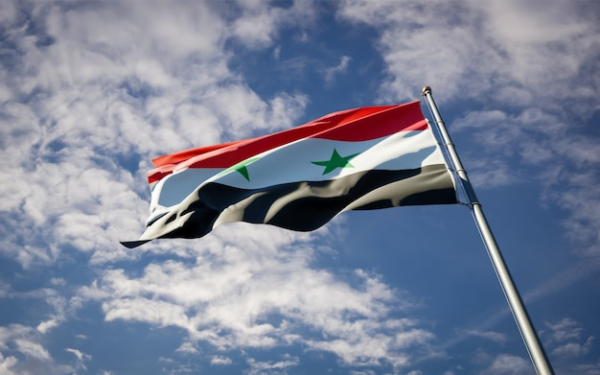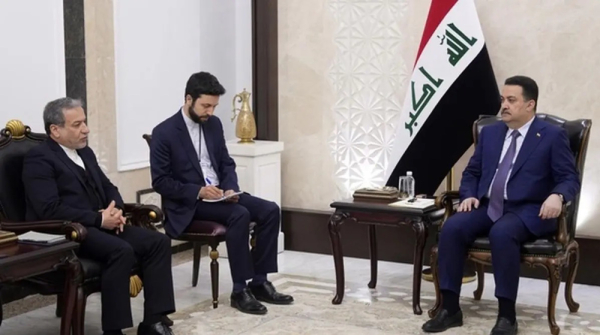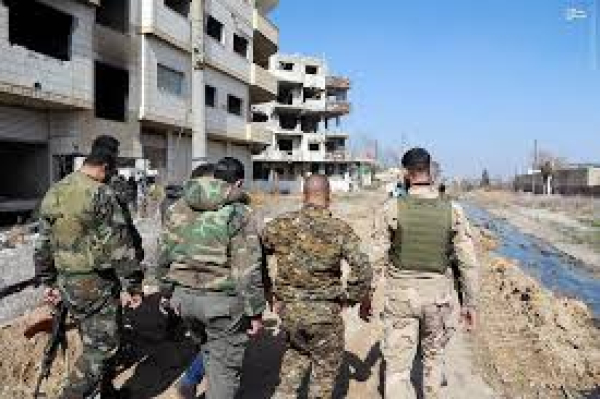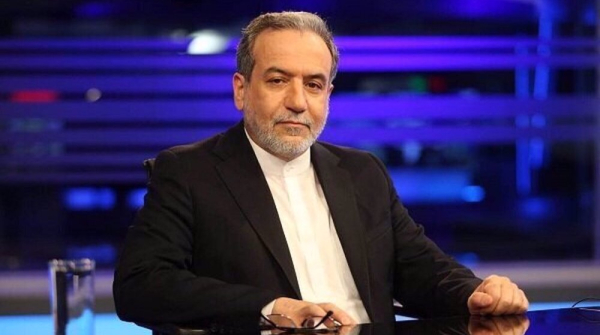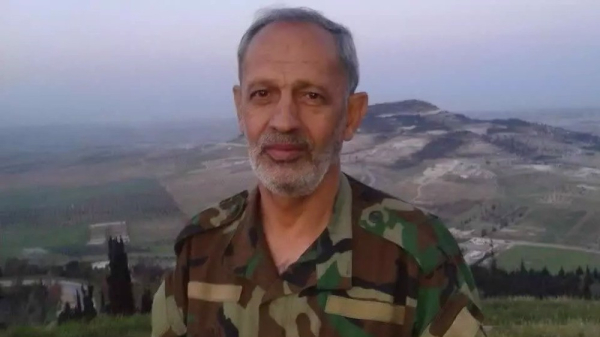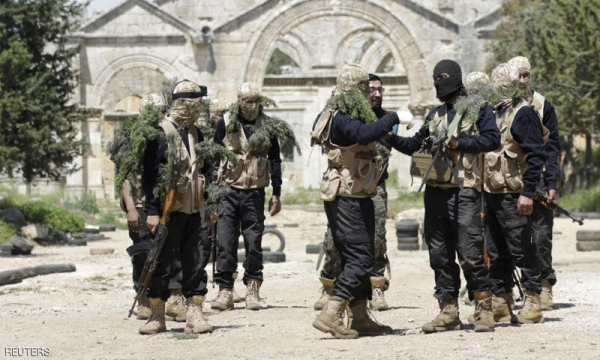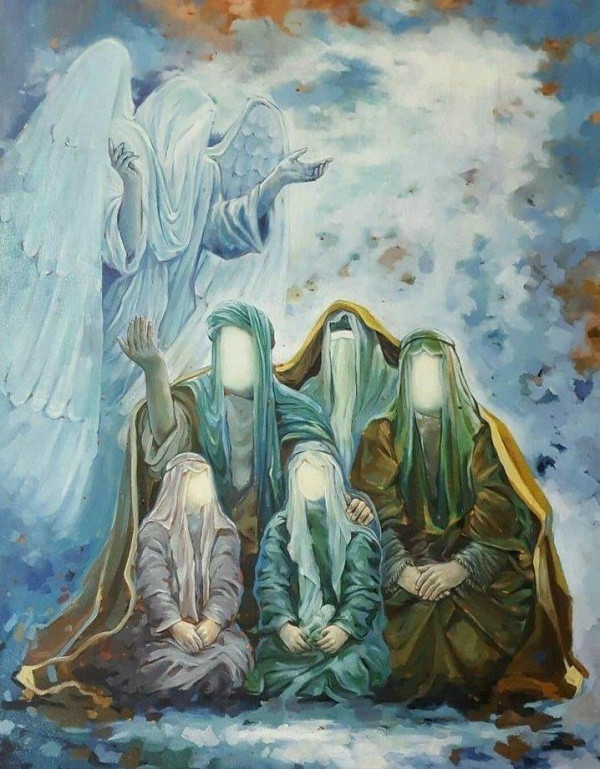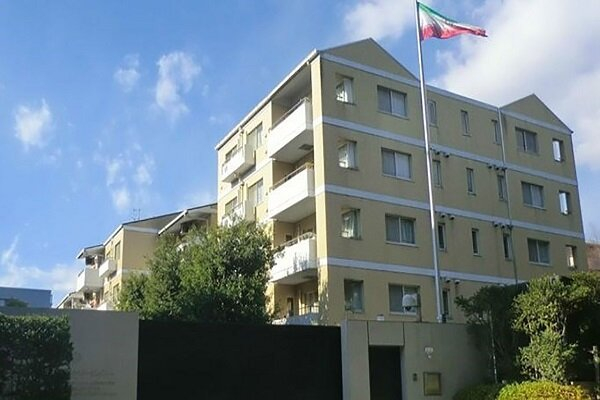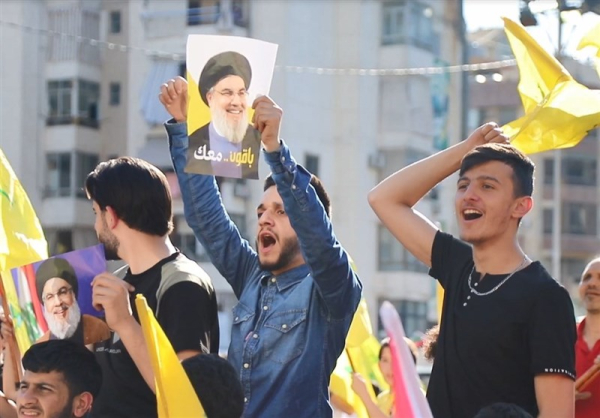zarezadeh
Iranian President: Dialogue among all Syrians is essential to achieve consensus
The president made the remarks in an address to a cabinet session on Sunday following the fall of the Syrian government after militant groups led by Hay’at Tahrir al-Sham (HTS) stormed Damascus.
“This is the Syrian people who should make decisions about the country’s future and its political system,” Pezeshkian said.
He stressed the importance of maintaining unity and protecting national sovereignty and territorial integrity in Syria.
He expressed hope that military conflicts and violence would end in Syria as soon as possible “so that the Syrian people will be able to decide their own destiny in a calm atmosphere free from any violence, anxiety or destructive external intervention.”
It is necessary to ensure the security of all Syrian citizens and foreign nationals and protect holy sites and diplomatic and consular premises as per international law, Pezeshkian said.
He added that Iran would continue its diplomatic consultations with all the parties involved and the United Nations to help stabilize the situation in Syria and establish stability and security in the region.
The Iranian president strongly condemned Israel’s aggression against Syrian territory and called on all parties in the Arab country and neighboring nations to remain vigilant against the regime's exploitation of the situation to further its expansionist and illegal goals.
In a statement earlier on Sunday, the Iranian Foreign Ministry said only the Syrian people can make decisions about the country’s fate without any “destructive” foreign meddling.
“The Islamic Republic of Iran closely monitors developments in Syria and the region and will adopt appropriate approaches and positions while taking into account the behavior and performance of influential players in the Syrian political and security scene,” it said.
Press TV’s website
Syria
Syria, officially the Syrian Arab Republic, is a country in Western Asia, located in the eastern Mediterranean and the Levant. It is bordered by the Mediterranean Sea to the west, Turkey to the north, Iraq to the east and southeast, Jordan to the south, and Israel and Lebanon to the southwest. It is a republic consisting of 14 governorates. Damascus is the capital and largest city of Syria. With a population of 25 million in an area of 185,180 square kilometers (71,500 square miles), it is the 57th most populous country and the 87th largest country.
The name "Syria" historically refers to a wider region, generally synonymous with the Levant, known in Arabic as al-Sham. The modern state encompasses the sites of several ancient kingdoms and empires, including the Ibla civilization of the 3rd millennium BC. Damascus and Aleppo are cities of great cultural importance. During the Islamic era, Damascus was the seat of the Umayyad Caliphate and a provincial capital of the Mamluk Empire in Egypt. The modern state of Syria was established in the mid-20th century after centuries of Ottoman rule, as a French mandate. The newly created state represents the largest Arab state, emerging from the provinces of Syria previously under Ottoman rule. In 1945, the new republic gained legal independence as a parliamentary republic, a move that legally ended the former French mandate. French forces withdrew in April 1946, granting it de facto independence.
The post-independence period was turbulent, with several military coups rocking the country between 1949 and 1971. In 1958, Syria entered into a short-lived union with Egypt, which ended in a 1961 coup and was renamed the Arab Republic. Syria established a one-party state in a 1963 coup constitutional referendum led by the Baath Party's military committee, and ruled Syria under emergency law from 1963 to 2011, effectively suspending constitutional protections for citizens. Internal power struggles within the Baathist factions led to further coups in 1966 and 1970, ultimately leading to the seizure of power by Hafez al-Assad. He effectively established an Alawite minority government to consolidate power in his family. After Assad's death, his son Bashar al-Assad inherited the presidency in 2000. Since the Arab Spring in 2011, Syria has been embroiled in a multi-party civil war with the involvement of various countries, leading to a refugee crisis in which more than 6 million people have been displaced from the country. In 2014-2015, in response, the United States launched an international coalition that defeated ISIS territorially in Syria. Since then, three political entities - the Syrian Interim Government, the Syrian Salvation Government, and Rojava - have emerged on Syrian soil to challenge Assad's rule.
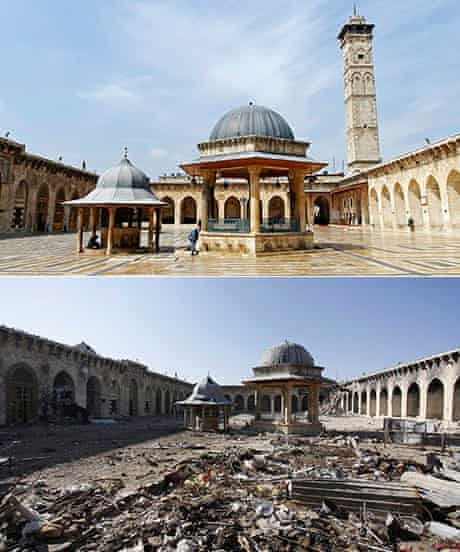 Syria is a country of fertile plains, high mountains and deserts, home to a diverse range of ethnic and religious groups. Arabs are the largest ethnic group and Sunni Muslims are the largest religious group. It is now the only country ruled by neo-Baathists who advocate socialism and Arab nationalism. The country’s current Baathist government is a totalitarian dictatorship with an all-encompassing personality cult around the Assad family and has drawn widespread criticism for its severe internal repression and war crimes.
Syria is a country of fertile plains, high mountains and deserts, home to a diverse range of ethnic and religious groups. Arabs are the largest ethnic group and Sunni Muslims are the largest religious group. It is now the only country ruled by neo-Baathists who advocate socialism and Arab nationalism. The country’s current Baathist government is a totalitarian dictatorship with an all-encompassing personality cult around the Assad family and has drawn widespread criticism for its severe internal repression and war crimes.
Syria is ranked fourth worst on the list of fragile states. Hypocrites and foreign enemies have caused the unity among the Syrian people to crumble. Meanwhile, ISIS, with the help of Turkey, invaded the country and managed to take over some of the country. Meanwhile, soldiers from Iraq and Iran are fighting ISIS terrorists.
Iran warns that the threat from armed groups is "not limited to Syria," according to Neighbors at Risk.
Iranian Foreign Minister Abbas Araghchi says the threat of armed groups active in Syria will not be limited to the country and will spread to Iraq, Jordan, and Turkey.
Araghchi was speaking in a joint press conference with his Iraqi and Syrian counterparts Fuad Hussein and Bassam Sabbagh in Baghdad on Friday.
If Syria becomes a safe haven for terrorists and the ground is prepared for the return of terrorist groups, including Daesh, this will pose a major threat to the entire region, he warned.
Pointing to three messages of the tripartite meeting in Baghdad, he said, “The first message is to support the Syrian government and people in the fight against Takfiri terrorist groups.”
He expressed confidence that Takfiri terrorist groups are carrying out their attacks as part of an American-Zionist plot, emphasizing, “The role of the Zionists in designing this conspiracy should not be overlooked.”
The top Iranian diplomat once again warned that terrorism knows no bounds, saying the fight against the scourge should not be limited to borders.
“In order to protect our own security, we must support the security of our neighbors in the fight against terrorism,” he pointed out.
He urged a non-discriminatory fight against terrorism, saying the Hayat Tahrir al-Sham (HTS) and the Nusra Front have been designated as a terrorist group by the United Nations.
Syria has been gripped by foreign-sponsored militancy since March 2011, with Damascus saying the Western states and their regional allies are aiding terrorist groups to wreak havoc in the Arab country.
The Hayat Tahrir al-Sham armed group launched a large-scale attack in Aleppo and Idlib provinces in the northwest of Syria on November 27, seizing several areas. Since then, the Syrian government forces have been engaged in fierce clashes to regain ground.
As terror victim, Iraq will continue to fight terrorism: Hussein
The Iraqi foreign minister condemned the ongoing attacks in Syria by terrorists who are listed as a terrorist group by the UN.
Hussein said his country has been a victim of terrorism and will continue to fight it.
He added that security of Iraq links to security in Syria and other neighboring countries.
Hussein underscored the importance of preventing the spread of war and terrorist attacks to his country, saying the Iraqi armed and security forces as well as fighters of the resistance movement Hashd al-Shaabi and Kurdish Peshmerga are fully prepared to protect the country’s territory and people.
Syrian army fulfilling duties in anti-terror fight: Sabbagh
Sabbagh said the Syrian army is conducting its duties to fight terrorist groups, adding that the moves by terrorist groups have displaced a portion of his country’s people.
The Syrian foreign minister added that supporters of the terrorist groups have violated resolutions of the United Nations and Security Council as well as the agreements of the Astana peace process.
He emphasized that dangerous terrorist threats are not threatening only Syrian security but endanger security of the entire region,
He called for regional and international efforts to combat terrorist groups.
Press TV’s website
The increase in terrorism in Syria is part of the US-Israeli conspiracy
The invasion of foreign-backed Takfiri terrorists in Syria is the first step in a dangerous scenario for the region, he said: The coincidence of this invasion with a fragile ceasefire in Lebanon indicates a coordinated American-Zionist conspiracy to weaken Syria, its allies and the axis of resistance.
Foreign-backed terrorists led by the Takfiri group "Hayat Tahrir al-Shams" launched a massive offensive in the provinces of Aleppo and Idlib in northwestern Syria on November 27 and captured several areas.
Since then, Syrian government forces have been engaged in fierce clashes with terrorists to retake their positions.
The terrorist groups seek to prevent the Syrian government's efforts to consolidate security and stability in the country, which is also under regular Israeli aggression.
Israel has been the main sponsor of terrorist groups opposing the democratically elected government of President Assad since the foreign-backed militants began in Syria in March 2011.
Russia, alongside Iran, has been assisting Syrian forces in battles across the country, mainly by providing air support for ground operations.
Iran ready to consider troop deployment to Syria upon official request
In an interview with the Qatari-owned news outlet New Arab, Araghchi warned that the surprise offensive by terrorist groups in northwestern Syria could pose a more serious security threat to neighboring countries, such as Turkey and Iraq, than to Iran.
He expressed his concerns about the potential collapse of the Astana process, a diplomatic initiative that began in 2017 and involves three main guarantor states: Russia, Turkey, and Iran.
The Astana process was established to facilitate dialogue and negotiations aimed at resolving the Syrian conflict, but its effectiveness has come under scrutiny as terrorist violence continues to escalate.
Under this initiative, the three countries committed to preventing a resurgence of militancy in Syria. However, the recent surge in terrorist activities has led to criticism of Turkey, a primary supporter of foreign-backed militancy in Syria since 2011, for failing to uphold its obligations.
Araghchi also discussed his recent visit to Ankara, noting that Tehran consistently seeks consultation and dialogue with Turkey regarding their differences. He said there are ongoing preparations aimed at calming the situation in Syria and creating opportunities for a lasting resolution.
On Iran’s relationships with allies in the Axis of Resistance, Araghchi stated that "Iran does not command resistance factions in Arab countries and does not have organizational ties with them; rather, it supports their cause and provides assistance when necessary."
Regarding the possibility of an agreement to halt the Israeli campaign of genocide in Gaza, Araghchi said "if Israel enters negotiations with Hamas for a ceasefire and the release of captives, it would signify Israel's defeat."
On Iranian relations with Saudi Arabia, he indicated that they are progressing positively but emphasized that these relations are distinct from those between Tehran and Washington. Concerning Iran's negotiations with Europe regarding its peaceful nuclear program, Araghchi expressed "many reasons for pessimism" about these discussions.
He said Iran currently has no intention of engaging in dialogue with Washington due to a lack of basis for such discussions.
"We are waiting to see how the new administration will shape its policies; then we will formulate our own policy."
Press TV’s website
Iranians bid farewell to senior adviser to the Islamic Revolutionary Guard Corps who was martyred in a terrorist attack in Syria.
Iranians attended the funeral of a senior adviser to the Islamic Revolutionary Guard Corps who was martyred following a massive attack by foreign-backed Takfiri terrorists on government-controlled positions in the northwestern Syrian province of Aleppo.
Mourners carried the coffin of Brigadier General Kiomars Poureshmi with the Iranian flag on Saturday morning.
The ceremony was also attended by high-ranking military commanders and government officials.
He, who was one of the defenders of the shrine of Hazrat Zaynab (PBUH) and one of the senior military advisers to the IRGC in Syria, was martyred in the Takfiri attacks. Terrorists in the outskirts of Aleppo
At the request of Damascus, Iran has an advisory mission in Syria to help the war-torn Arab country defeat foreign-backed militants who have been fighting the Syrian government since 2011. Iran is trying to restore security to the region with the help of the Syrian government.
The revival of terrorism in Syria is an "American-Zionist conspiracy" after the defeat in Lebanon.
Iranian Foreign Minister Abbas Araqchi and his Syrian counterpart Bassam Al-Sabbagh
Iranian Foreign Minister Abbas Araqchi described the revival of Takfiri terrorism in northern Syria as the result of an American-Israeli project, noting: This development follows the Israeli regime's defeats against the resistance in Lebanon and the Palestinian territories.
Araqchi described this undesirable development as an "American-Zionist design" that led to the Israeli regime's defeat of the resistance movements in Lebanon and throughout the Palestinian territories.
These are the words that the official made on Thursday in a phone call with his Lebanese counterpart Abdullah Bouhabib, during which he called this phenomenon an American-Israeli scenario aimed at destabilizing West Asia following the Zionist regime's failures in confronting the Lebanese Hezbollah resistance. Movement
Araqchi also stressed that the threat of terrorism has been effectively countered by the Arab country.
Iran continues to support Syria in the fight against terrorism
Iraqchi stressed the Islamic Republic's continued support for the Syrian government, nation and army in the fight against terrorism and maintaining regional security and stability.
The remarks reflected Tehran's action as the first country to rush to support the Arab nation in 2014, when terrorism and foreign-backed militants swept across large parts of the country.
However, Damascus, with the help of its allies, was able to gradually reverse the tide and regain lost territory and defeat ISIS, the most brutal terrorist group, in 2017.
Sabbagh also reported on the situation on the ground in northern Syria after the terrorist attacks.
He stressed that the Syrian government and people have stood up to terrorist aggression with all their might and will continue to prevent the realization of the sinister ambitions of terrorists and their supporters.
It has been reported that members of the Takfiri terrorist group Hayat Tahrir al-Sham (HTS) have captured many areas under government control and killed dozens of Syrian soldiers in the north of the Arab country.
However, the Lebanese Al-Mayadeen TV channel later announced that the Syrian army had thwarted a large-scale terrorist operation in Aleppo province with a preemptive strike.
According to the channel, four major terrorist operations that were supposed to start from the city of Anadan, 12 kilometers northwest of Aleppo, were thwarted before they could begin.
According to the report, the army launched heavy missile attacks on terrorist positions from villages west of Aleppo to Mount Zawia, south of the city of Idlib in the neighboring province.
It is also said that the Syrian army has stopped the advance of terrorists led by Hayat Tahrir al-Sham in southeast Idlib and has launched a counterattack to retake their positions.
A Beautiful Lesson from the Epic Life of the Ahlul Bayt
Give to others what you love for yourself, even when you may need it yourself.
“And they feed the poor and the orphan and the captive, [saying] We feed you only for the sake of Allah. We ask of you no reward, nor thanks.” (76:8-9).
Throughout her life, Fatimah prioritized the needs of others over her own. This verse was revealed when Fatimah Zahra and Imam Ali (peace be upon them) (and some narrations their slave girl Fida and Imam Hassan (peace be upon them) and Hussein (peace be upon them)) fasted for three days after Allah cured Imam Hassan and Hussein from their illness.
Every night a needy person would come to her door asking for food, and every night she would give what she had to the hungry.
On another occasion, on the day of her wedding, Fatimah (peace be upon her) donated her wedding dress to a needy woman. They say that this verse is in response to their question: "You will never attain piety until you spend from what you love." [3:92]
Iranian Embassy in Beirut congratulates Lebanese people on victory
The Embassy of the Islamic Republic of Iran in Lebanon, in a message to the Lebanese people and the country’s resistance, congratulated them on their great victory in confronting the Zionist regime. The message states: This glorious victory, which was achieved through the efforts and sacrifices of the loyal sons of the Lebanese people, represents the evolution of politics and the battlefield and proves its effectiveness in thwarting the aggressive plans against this honorable country and great nation.
The Iranian Embassy also pointed to the fulfillment of the promise of the Leader of the Resistance’s Martyrs, Sayyed Hassan Nasrallah, and emphasized that this victory was due to unparalleled sacrifices.
Finally, the Embassy saluted the pure souls of the resistance’s martyrs and all the innocent martyrs who sacrificed their lives for the honor, independence, and dignity of the Lebanese people.
Iran welcomes Lebanon ceasefire, stresses strong support for Hezbollah nation
In a statement emphasizing Iran’s firm support for the Lebanese government, nation, and resistance, Ismail Baghaei stated: Tehran has long emphasized the need for an immediate halt to Israel’s aggressions against Gaza and Lebanon and has made extensive diplomatic efforts in recent years. 14 months to achieve this goal.
The Iranian diplomat noted: The Zionist regime’s warlike policies and crimes, with the full support of the United States and some European countries, have led to the martyrdom of 60,000 innocent people, the injury of 120,000 people, the displacement of more than 3.5 million people in this country. The oppressed nations of Palestine and Lebanon, and the widespread destruction of vital infrastructure in the Gaza Strip and Lebanon
In light of the interim rulings of the International Court of Justice to prevent acts of genocide [in Gaza] and the International Criminal Court (ICC), the arrest warrants have been issued for the leaders of the Zionist regime on charges of war crimes and crimes against humanity. World public opinion has been demanding an end to the war and genocide for the past 14 months and is now waiting for the trial and punishment of the country's criminals. Baghaei stated: The occupying regime.
The Iranian Foreign Ministry spokesman stressed: The international community has the responsibility to maintain peace and stability in West Asia and to exert effective pressure on the aggressor Israeli regime to stop the Gaza war.
The ceasefire between Israel and Hezbollah took effect at 4 a.m. local time in Lebanon (0200 GMT) amid hopes that the ceasefire would lead to a permanent end to Israeli attacks on Lebanese cities and towns and a halt to more than a year of fighting in southern and northern Lebanon. Part of the occupied territories
US President Joe Biden says the agreement includes the withdrawal of Israeli forces from southern Lebanon within the next 60 days, and that the Lebanese army and government security forces will take control of areas in the south of the country.
UN Secretary-General Antonio Guterres has said that the UN peacekeeping force in Lebanon, UNIFIL, will also help implement the agreement.
